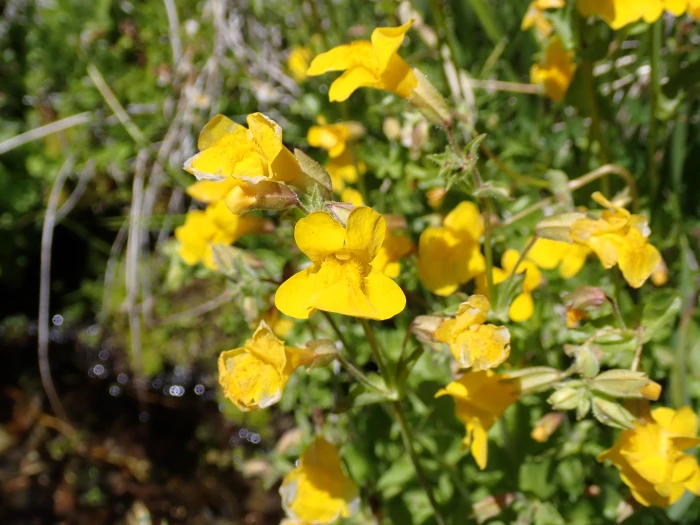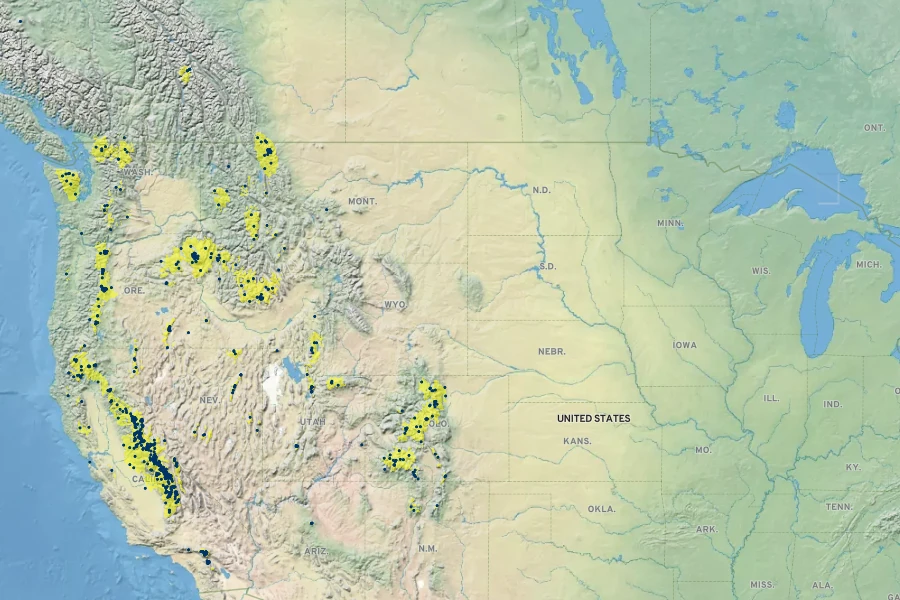Tiling’s Monkeyflower
/
(Erythranthe tilingii)
Tiling’s Monkeyflower (Erythranthe tilingii)
/

© Cricket Raspet
CC BY 4.0
Image By:
© Cricket Raspet
Recorded By:
Copyright:
CC BY 4.0
Copyright Notice:
Photo by: © Cricket Raspet | License Type: CC BY 4.0 | License URL: http://creativecommons.org/licenses/by/4.0/ | Uploader: chilipossum | Publisher: iNaturalist |























Summary
Erythranthe tilingii, commonly known as Tiling’s monkeyflower, is a rhizomatous perennial herb native to the moist and wet habitats of western North America, particularly found along streambanks and in mountain meadows at high elevations. This species, which can reach up to 14 inches in height, is characterized by its upright form and the production of showy yellow flowers that are over 1.5 inches long, typically blooming in the late spring to early summer months.
Tiling’s monkeyflower is appreciated for its vibrant flowers and ability to thrive in wet conditions, making it a suitable choice for water gardens, riparian plantings, and moist borders. It requires consistently moist soil and does well in full sun to partial shade. While it is not commonly used in urban settings due to its specific moisture requirements, it can be an attractive addition to native plant gardens and restoration projects. Care should be taken to avoid overly dry conditions, as this can stress the plant. It is also important to note that Erythranthe tilingii is not as widely cultivated as some other monkeyflower species, but it can be propagated by division of rhizomes or from seed. There are no major disease problems associated with this plant, but it may be susceptible to powdery mildew if airflow is poor.CC BY-SA 4.0
Tiling’s monkeyflower is appreciated for its vibrant flowers and ability to thrive in wet conditions, making it a suitable choice for water gardens, riparian plantings, and moist borders. It requires consistently moist soil and does well in full sun to partial shade. While it is not commonly used in urban settings due to its specific moisture requirements, it can be an attractive addition to native plant gardens and restoration projects. Care should be taken to avoid overly dry conditions, as this can stress the plant. It is also important to note that Erythranthe tilingii is not as widely cultivated as some other monkeyflower species, but it can be propagated by division of rhizomes or from seed. There are no major disease problems associated with this plant, but it may be susceptible to powdery mildew if airflow is poor.CC BY-SA 4.0
Plant Description
- Plant Type: Herb
- Height: 0.2-1.5 feet
- Width: 0.5-1 feet
- Growth Rate: Moderate
- Flower Color: Yellow
- Flowering Season: Spring, Summer
- Leaf Retention: Deciduous
Growth Requirements
- Sun: Full Sun, Part Shade
- Drainage: Medium
Common Uses
Butterfly Garden, Deer Resistant, Erosion Control, Low Maintenance, Water Garden
Natural Habitat
Moist and wet habitats along streambanks and in mountain meadows at high elevations
Other Names
Common Names: Subalpine Monkey-Flower, Alpine Monkey Flower, Large Mountain Monkeyflower, Mountain Monkeyflower
Scientific Names: Erythranthe tilingii, Mimulus caespitosus var. implexus, Mimulus implexus, Mimulus implicatus, Mimulus langsdorffii var. tilingii, Mimulus lucens, Mimulus tilingii, Mimulus tilingii var. tilingii
GBIF Accepted Name: Erythranthe tilingii
